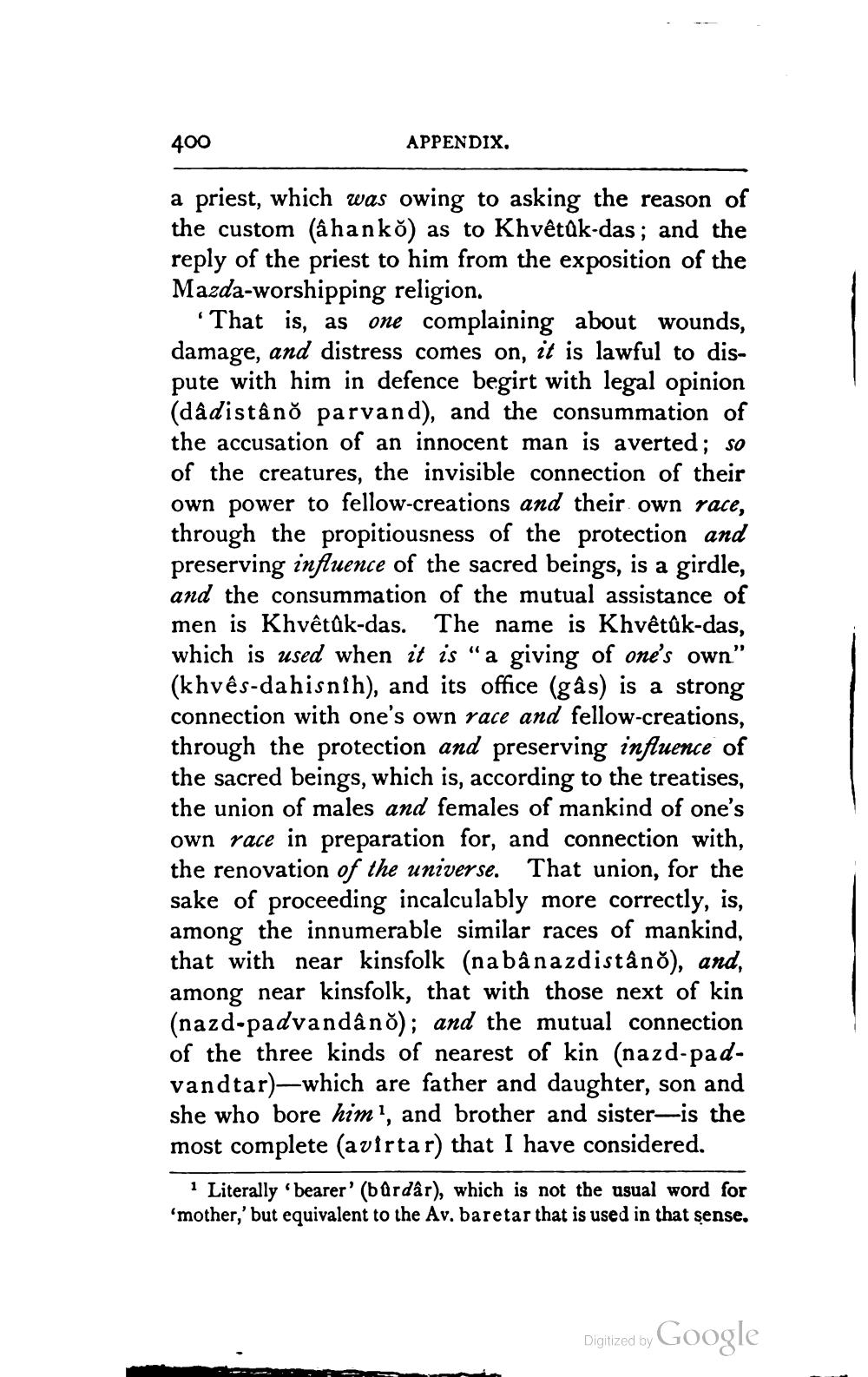________________
400
APPENDIX.
a priest, which was owing to asking the reason of the custom (âhanko) as to Khvêtûk-das; and the reply of the priest to him from the exposition of the Mazda-worshipping religion.
That is, as one complaining about wounds, damage, and distress comes on, it is lawful to dispute with him in defence begirt with legal opinion (dâdistâno parvand), and the consummation of the accusation of an innocent man is averted; so of the creatures, the invisible connection of their own power to fellow-creations and their own race, through the propitiousness of the protection and preserving influence of the sacred beings, is a girdle, and the consummation of the mutual assistance of men is Khvêtûk-das. The name is Khvêtûk-das, which is used when it is "a giving of one's own" (khvês-dahisnih), and its office (gas) is a strong connection with one's own race and fellow-creations, through the protection and preserving influence of the sacred beings, which is, according to the treatises, the union of males and females of mankind of one's own race in preparation for, and connection with, the renovation of the universe. That union, for the sake of proceeding incalculably more correctly, is, among the innumerable similar races of mankind, that with near kinsfolk (nabânazdistânó), and, among near kinsfolk, that with those next of kin (nazd-padvandâ no); and the mutual connection of the three kinds of nearest of kin (nazd-padvandtar)—which are father and daughter, son and she who bore him?, and brother and sister-is the most complete (avirtar) that I have considered.
1 Literally "bearer' (bûrdâr), which is not the usual word for 'mother,' but equivalent to the Av. baretar that is used in that sense,
Digitized by Google




